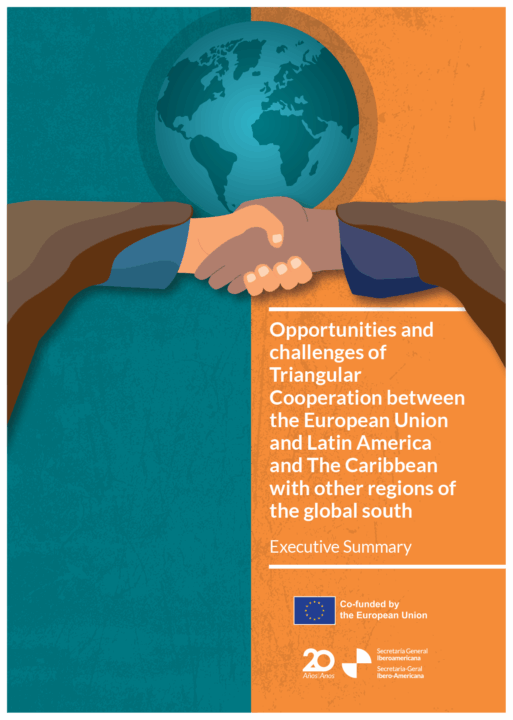Opportunities and challenges of TC between the EU and LAC with other regions of the global south
Latin America and the Caribbean (LAC) has positioned itself as the most dynamic region globally in TC, both in terms of the number of initiatives carried out and the methodological instruments developed in this area. In recent years, TC has also become established as a form of cooperation valued by the European Union (EU) and its member states, which are key partners of Latin America and the Caribbean (LAC) in these working frameworks.
However, when looking at the participation of other regions of the Global South in the TC initiatives executed by Ibero-American countries, it has been lower in comparison to other modes of cooperation. According to the same source, while other regions of the Global South participate in around 40% of regional SSC exchanges and 25% of bilateral SSC exchanges, their participation in TC initiatives from LAC is only about 16.
The data highlights that Latin America and the Caribbean (LAC) has a unique opportunity to showcase its extensive experience in managing Triangular Cooperation (TC), along with the tools, expertise, and best practices that have established its leadership in this field. By partnering with the European Union (EU), LAC can extend its knowledge to other developing regions. To achieve this, it is crucial to understand and identify both the challenges and opportunities that will enable the development of a strategic roadmap and strengthen partnerships with other regions of the Global South.
With just over five years remaining until the deadline for achieving the 2030 Agenda, and in a global scenario marked by the deepening of the climate crisis, economic inequalities, armed conflicts, and the still-devastating consequences of the COVID-19 pandemic, among other phenomena, TC is seen by the international community as a key tool for addressing the multidimensionality and dynamism of development challenges.
